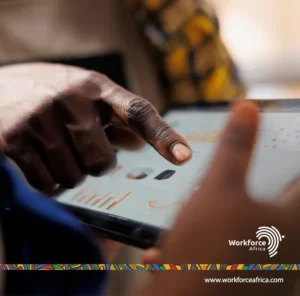E-learning content conversion services are transforming how organisations deliver training across the African continent. As businesses operate in increasingly competitive and diverse markets, the ability to provide consistent, high-quality training to employees across multiple locations has become a strategic necessity. Traditional classroom training can no longer keep pace with the speed, scale, and flexibility that modern organisations demand.
By converting existing training materials into engaging digital formats, organisations can expand learning access, improve retention, and ensure that every employee receives the same quality of instruction regardless of location. Below are four powerful ways e-learning content conversion services are helping African organisations achieve this scale.
1. Transforming Static Materials into Interactive Learning
At its core, e-learning content conversion services involve taking existing resources such as manuals, slide decks, instructor notes, or recorded sessions and transforming them into interactive online learning experiences. This process goes beyond moving content online. It requires thoughtful instructional design, multimedia integration, and an understanding of how adults learn in diverse workplace environments.
By embedding quizzes, videos, simulations, and scenario-based exercises, converted content encourages active participation and deeper knowledge retention. Employees also benefit from flexible learning pathways, allowing them to revisit challenging concepts or skip familiar topics, a valuable advantage for industries like healthcare, retail, and manufacturing.
2. Delivering Consistent Training Across Geographies
Africa’s workforce is geographically dispersed. Multinational corporations may operate in several countries, while local enterprises expand into new regions quickly. In both cases, consistency in training remains a challenge.
Traditional training creates variability, as trainers often interpret material differently. With elearning content conversion services, every learner receives the same standardised content, ensuring clarity and uniform application of policies, safety procedures, and performance expectations. Whether based in Nairobi, Lagos, Johannesburg, or Accra, employees gain access to the same learning resources, reducing errors and inconsistencies.
Furthermore, digital training can be localised to reflect market realities while still preserving core organisational standards. This balance between global consistency and local relevance is key to building strong, adaptable workforces.
3. Enabling Faster Updates and Measurable Impact
In today’s fast-moving markets, training content can quickly become outdated. New products, revised regulations, and shifting customer expectations demand continuous learning updates. With traditional approaches, updating materials can mean reprinting manuals or organising costly face-to-face sessions.
Elearning content conversion services solve this problem by enabling quick digital updates that can be pushed to all employees simultaneously. This ensures that everyone is learning from the most current information, without the delays of logistics or printing.
Equally important is the ability to measure training impact. Through built-in analytics, organisations can track completion rates, assessment scores, and learner engagement in real time. This data-driven insight helps identify skills gaps, refine learning design, and demonstrate return on investment to leadership.
4. Expanding Access with Mobile and Offline Learning
One of the biggest barriers to training in Africa is connectivity. Many employees work in regions with unreliable internet access or operate in environments where online training is not always feasible during working hours.
E-learning content conversion services address this challenge by creating mobile-friendly and offline-capable content. Employees can download modules to study during commutes, breaks, or after hours, ensuring access regardless of internet availability. This inclusivity expands participation, helping organisations ensure that no employee is excluded due to infrastructure limitations.
By widening access, businesses build more inclusive learning cultures and strengthen their talent pipelines in markets where digital transformation is accelerating.

Conclusion
The shift to digital learning in Africa is more than a trend. It is a strategic advantage for organisations that want to scale learning efficiently, maintain consistency across geographies, and ensure measurable business impact.
E-learning content conversion services make this possible by transforming static materials into engaging learning, standardising training across regions, enabling faster updates, and expanding access through mobile and offline solutions. The result is a scalable, flexible, and future-ready approach to workforce development.
At Workforce Africa, we partner with organisations across the continent to convert training into impactful, accessible, and engaging learning experiences tailored to African business realities.
Contact us at hello@workforceafrica.com or schedule a free consultation to begin your journey toward scalable learning success.






